Mondays
Éric Rohmer: Comedies and Proverbs
Programmed by Ivan Albertson
Essay by Ivan Albertson
In the 1980s, following the Six Moral Tales and two period pieces, Éric Rohmer began Comedies and Proverbs, a new six-film cycle. Referencing a literary genre used by Alfred de Musset among others, each film in the cycle opens with a witty aphorism, in some cases invented by Rohmer himself. “...My proverbs will always be either false ones or those against the grain," said Rohmer. "The opposite of any truth is also correct.” Each functions as an oblique framing device, an abstract idea for Rohmer to riff on. For instance, in The Aviator's Wife the proverb—"It is impossible to think about nothing"—references dialogue to the contrary but also looms over the obsessive behavior of François, unable to keep his jealous mind from wandering.
The Comedies and Proverbs further Rohmer’s aim "to portray in film what seem[s] most alien to the medium, to express feelings buried deep in our consciousness," this time focusing largely on independent young women. No one else is better at depicting the relationship between words and action, between philosophy and life. Each successive scene in a Rohmer film subtly shifts the dynamic between characters while complicating the protagonist's worldview. "The excitement of these Rohmer films," wrote Tom Gunning, "lies exactly in the playing out of a precise scenario within a contingent universe."
The series is imbued with what Rohmer called "the spirit of social games," departing from the subjectivity of most of the Moral Tales. While still psychologically acute, they also keenly observe how people are both affected by and oblivious to others. For the ensemble of Pauline at the Beach living in close proximity, the games of manipulation feel like the inevitable result of criss-crossed desire, whereas in A Good Marriage, they’re constructed by the protagonist as a (dubious) way to take control of her life. Rohmer described the Comedies as “superficial” films, citing Andre Bazin’s belief in the “profundity of the superficial.” It’s similarly paradoxical to call these films comedies. Though they tend to be light and breezy, there’s a serious loneliness at their core, resulting from the characters’ inability to mold the world to their desires. "I think you only have a comic sense if you have a tragic sense too,” Rohmer explained. “All scenes from tragedy could play as comedy.”
Removing the first-person perspective of the Moral Tales adds a productive layer of distance from the viewer, even in those entries intently focused on a single character. In Full Moon in Paris, we only receive Louise’s thoughts as expressed to others, so the way her mind works remains mysterious. We aren’t even sure of the extent to which she believes her own self-serving words. One of the film’s best scenes shows her alone in her pied-a-terre laboring to project a cheerful phone disposition as she struggles to make a date for the night. One wonders just how oblivious she is to her predicament.
Rohmer intended the Comedies to be an open-ended cycle, and indeed their impact can be felt on the four later films which conclude this retrospective. The whole series represents a move toward a pared-down aesthetic, but he went even further with the improvised The Green Ray, using just one person each for camera and sound. Finding this process left him "emotionally intact" at the end of the shoot, he employed it again on Four Adventures of Reinette and Mirabelle, The Tree, the Mayor and the Mediatheque, and Rendezvous in Paris. They retain the lightness of spirit of the Comedies despite their structural and thematic differences.
His films benefit from being seen on film (of course) and in close proximity to each other. This allows connections between the films to emerge, while dispelling the notion that they're all the same. His sensibility may be unwavering, but within this rigid framework lies a rich variety of human behavior. He places his characters within a (sometimes vicious) cycle of emotional expression, ensuing behavior, and justification of said behavior, all of which gradually accumulate to reveal who these people are. It's wonderful to behold.


This series was supported by the France Chicago Center, the Institut Français in Paris, and the Cultural Services of the French Embassy in New York and Chicago
2015-09-28 @ 7:00 PM
The Aviator's Wife
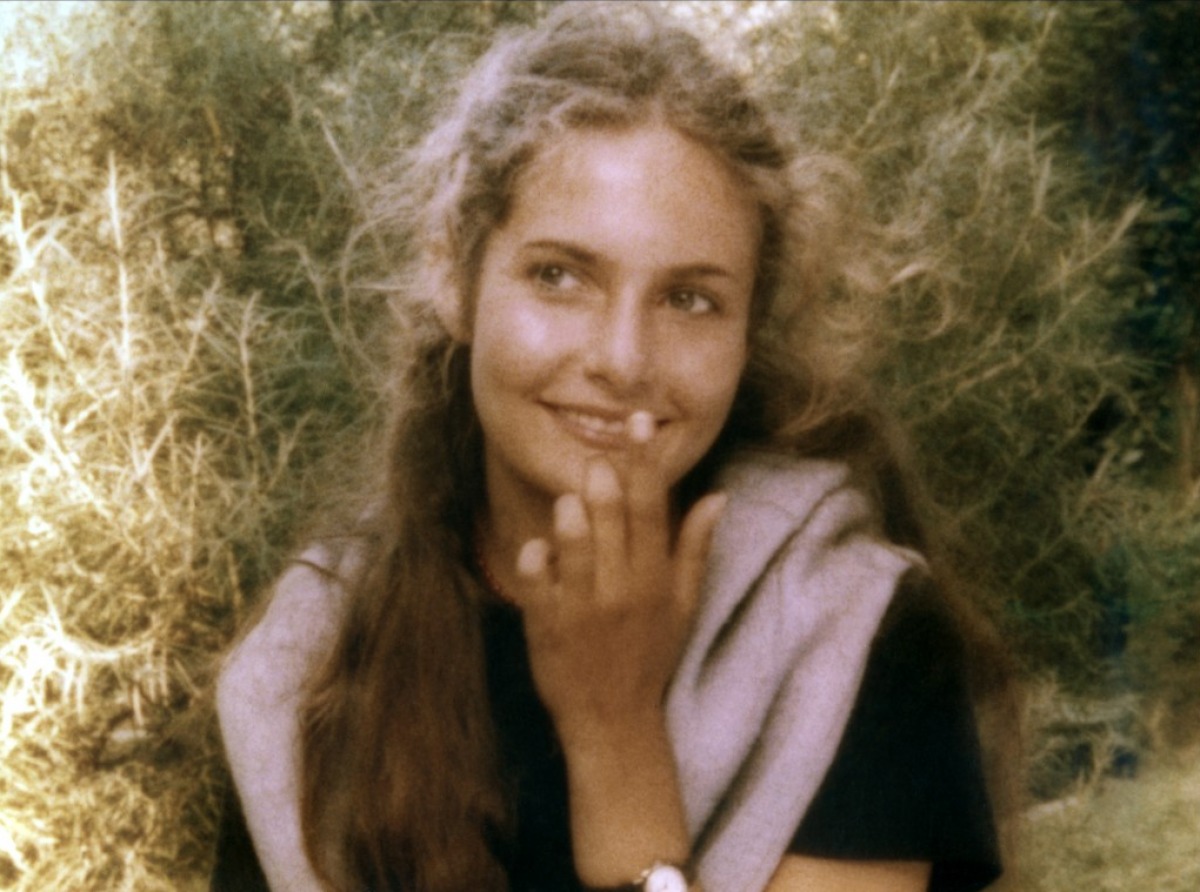
(Eric Rohmer, 1981) · "It is impossible to think about nothing." After François spots his girlfriend’s ex leaving her apartment one morning, he follows him around Paris, accompanied by the vivacious teenage girl he meets along the way. Rohmer breaks from the first-person narration of the Moral Tales for a delicate balance of perspectives, revealing characters too much in their own heads to begin to understand others. Film critic Dave Kehr called it “a perfect film.”
runtime: 108 min format: DCP
2015-10-05 @ 7:00 PM
Le Beau Mariage
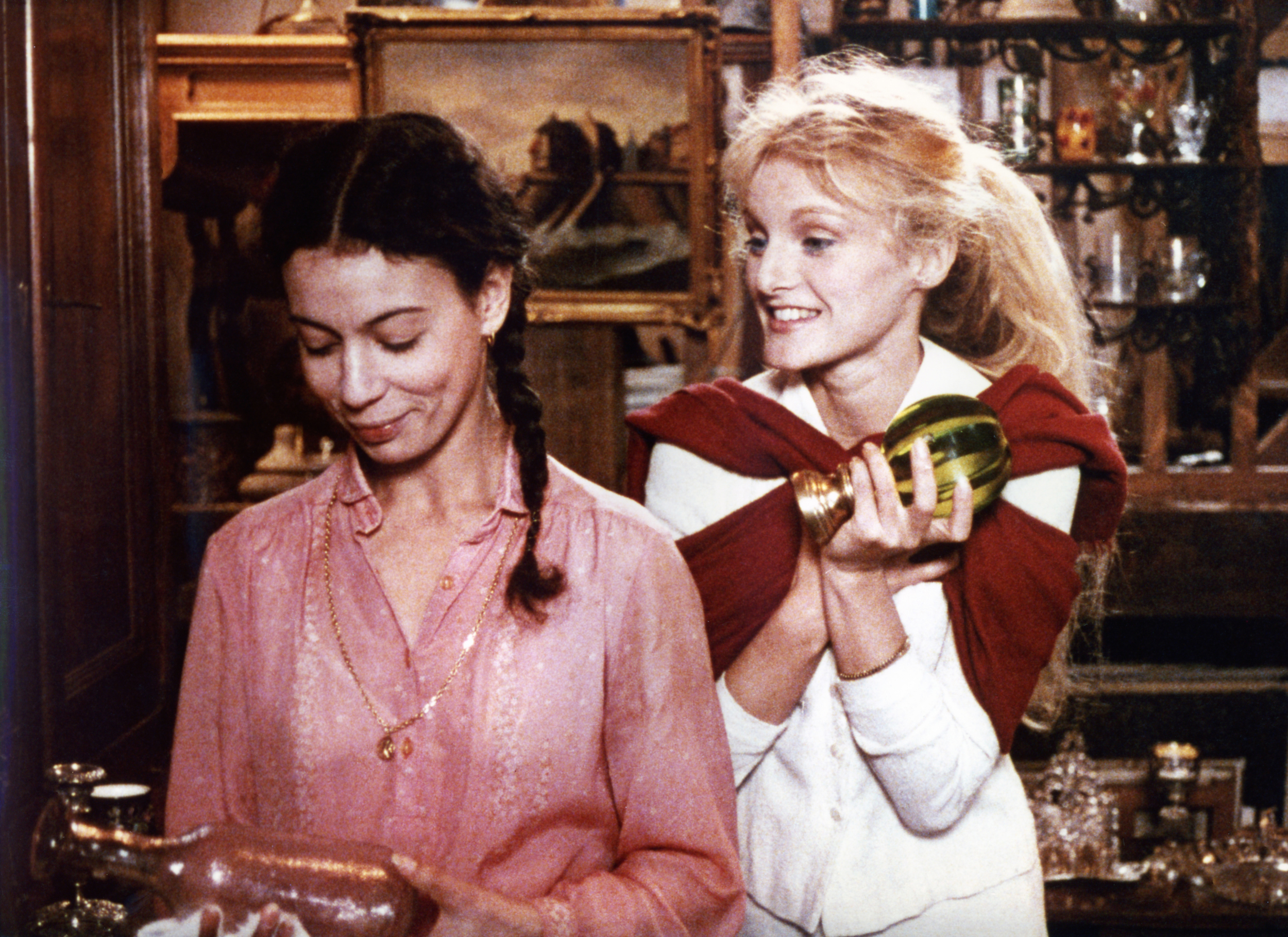
(Eric Rohmer, 1982) · “Who has not built castles in Spain?” Tired of having affairs with unavailable men, Sabine (Béatrice Romand) decides to get married. Her object (André Dussollier) isn't interested but rebuffs her too politely to deter her. She is one of Rohmer's most indelible contradictions: self-possessed but dependent, and yet still impervious to advice. As the proverb suggests, her mission is not unlike our own flights of fancy. Print courtesy of the Institut Français.
runtime: 97 min format: 35mm
2015-10-12 @ 7:00 PM
Pauline at the Beach
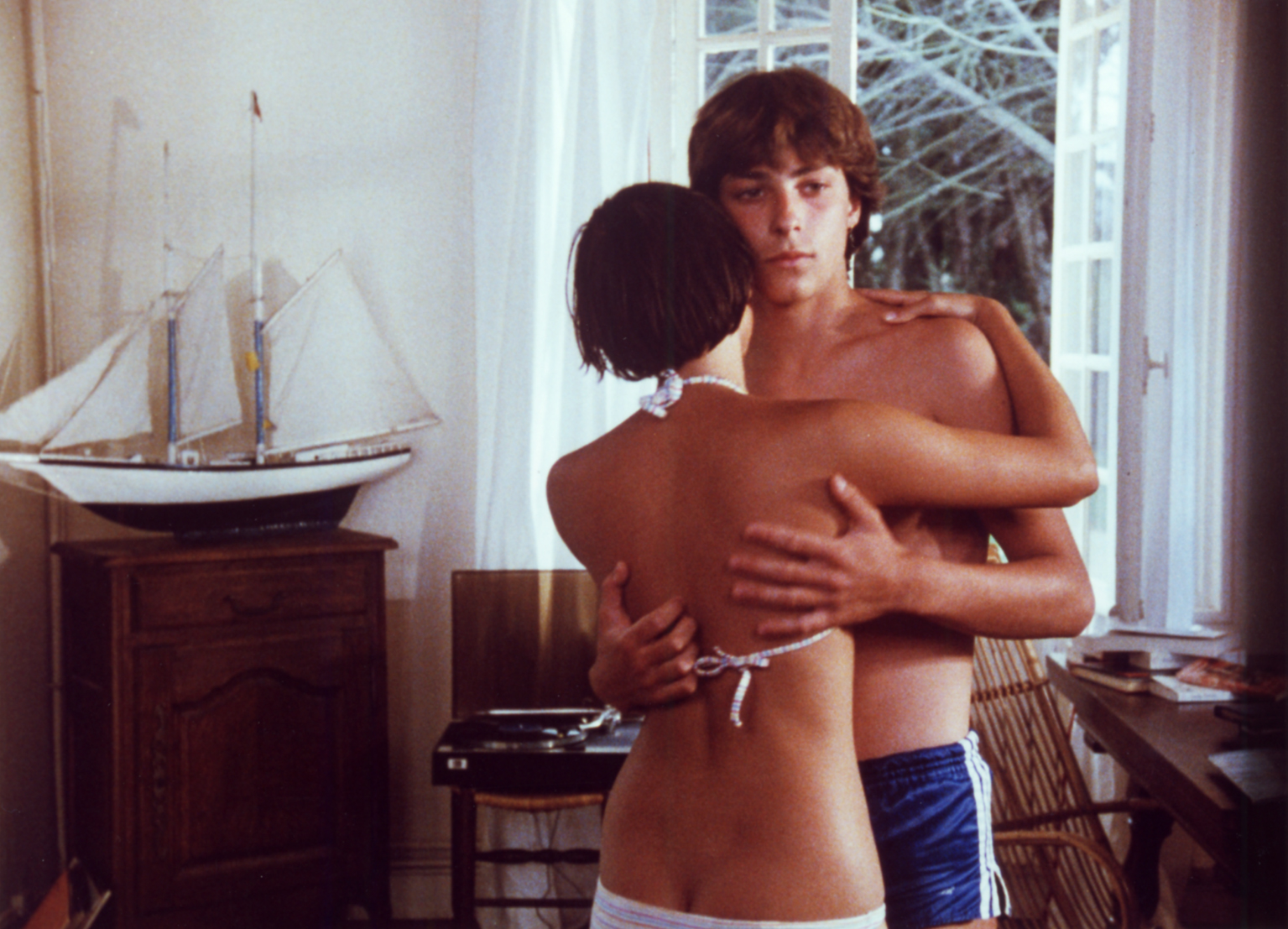
(Eric Rohmer, 1983) · ''A wagging tongue bites itself.'' Teenage Pauline is spending the summer with her older cousin Marion at the family vacation house. She falls in with Marion’s circle of friends and ex-lovers, bearing witness to their fickleness and deceit?hardly traits of the mature adults she imagined them to be. At times resembling a bedroom farce, this is the most intricate and layered of the Comedies and Proverbs, and possibly the best. Print courtesy of the Institut Français.
runtime: 94 min format: 35mm
2015-10-19 @ 7:00 PM
Full Moon in Paris
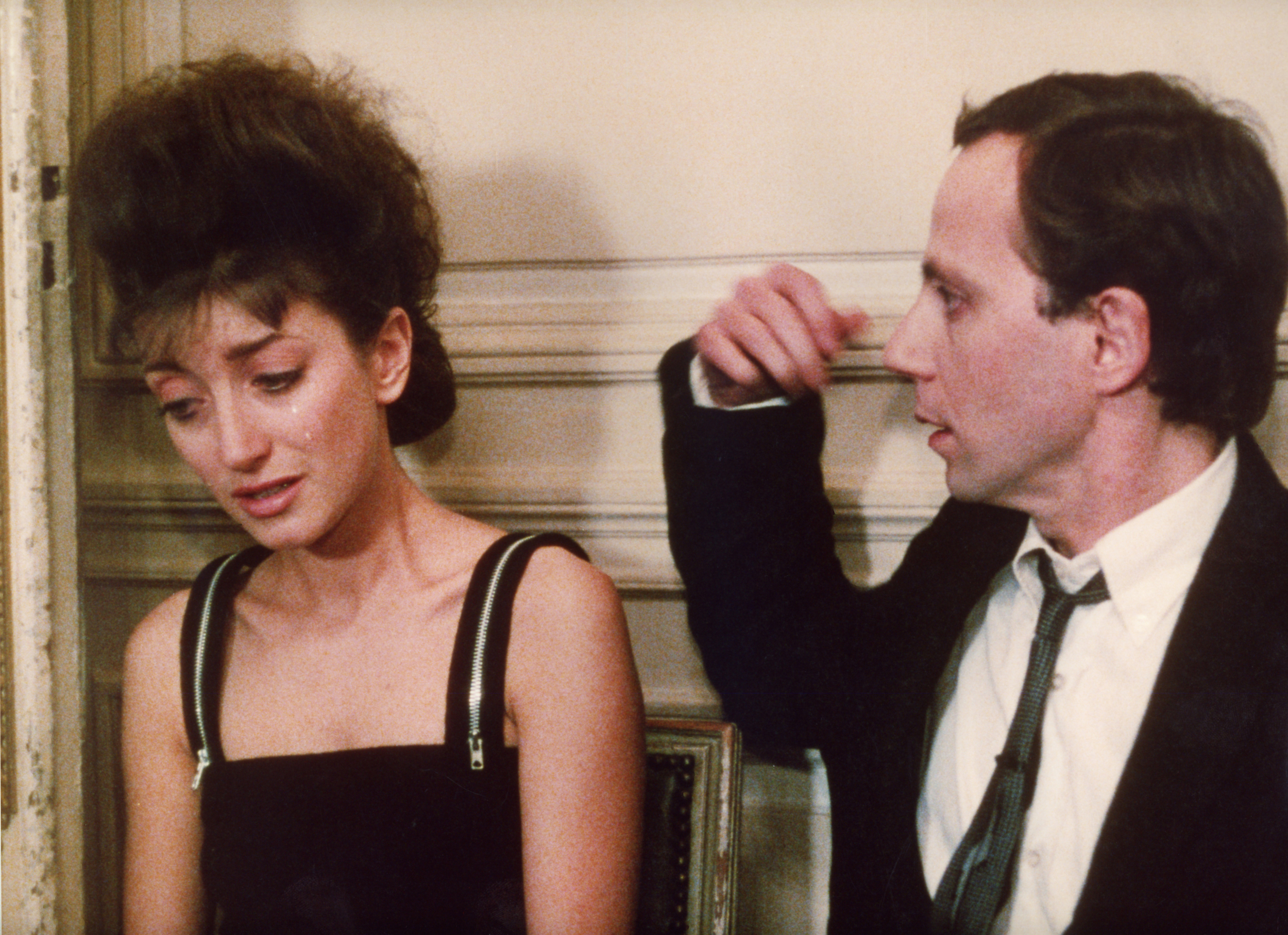
(Eric Rohmer, 1984) · “He who has two women loses his soul; he who has two houses loses his mind.” Although she lives with her boyfriend, Louise (Pascale Ogier) takes a second apartment in Paris ostensibly to regain her independence, only to fall into an equally stifling, quasi-platonic relationship with a writer (Fabrice Luchini). Louise’s implacable poise is the perfect front for her deep reservoir of passive aggression and self-denial. Print courtesy of the Institut Français.
runtime: 102 min format: 35mm
2015-10-27 @ 7:00 PM
The Green Ray
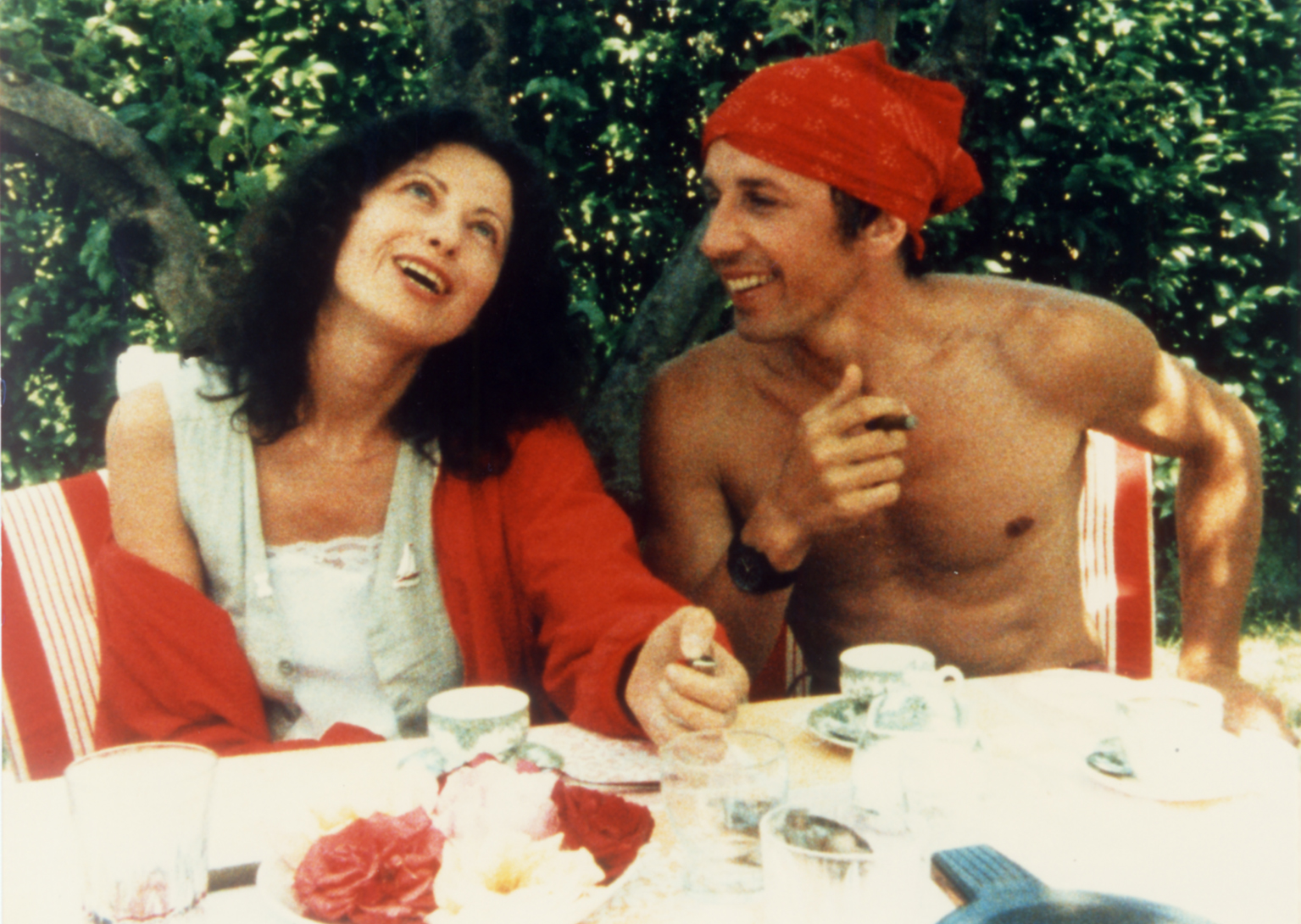
(Eric Rohmer, 1986) · “Ah, for the days/That set our hearts ablaze.” Entirely improvised and shot with a minimal crew, The Green Ray finds Rohmer applying a looser visual style to his thematic rigor. Newly single Delphine (Marie Rivière) takes comfort in her solitude but can't help feeling lonely amid the aggressive inclusion efforts of family and friends. This is the rare film that depicts summertime as a romantic and spiritual void?but with the potential for the sublime.
runtime: 98 min format: 35mm
2015-10-26 @ 7:00 PM
Special Event: Nosferatu
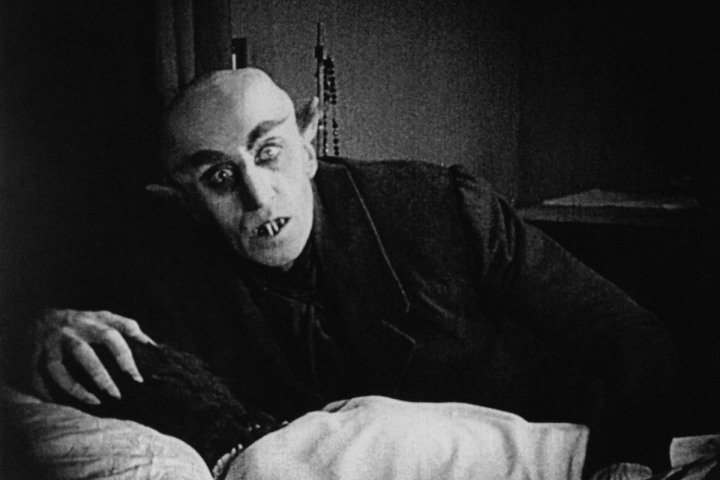
(F. W. Murnau, 1922) · Rockefeller Chapel welcomes back concert organist Dennis James to provide the music for silent film Nosferatu, in which mysterious Count Orlok (Max Schreck) summons Thomas Hutter to his remote Transylvanian castle in the mountains. After Orlok reveals his vampire nature, Hutter struggles to escape the castle, and you'll need to come to Rockefeller to see the rest of the story. Presented in connection with the Smart Museum’s Expressionist Impulses. $10/general admission, free to students and Doc Films passholders.
runtime: 94 min This screening will be held at Rockefeller Memorial Chapel
2015-11-02 @ 7:00 PM
Boyfriends and Girlfriends
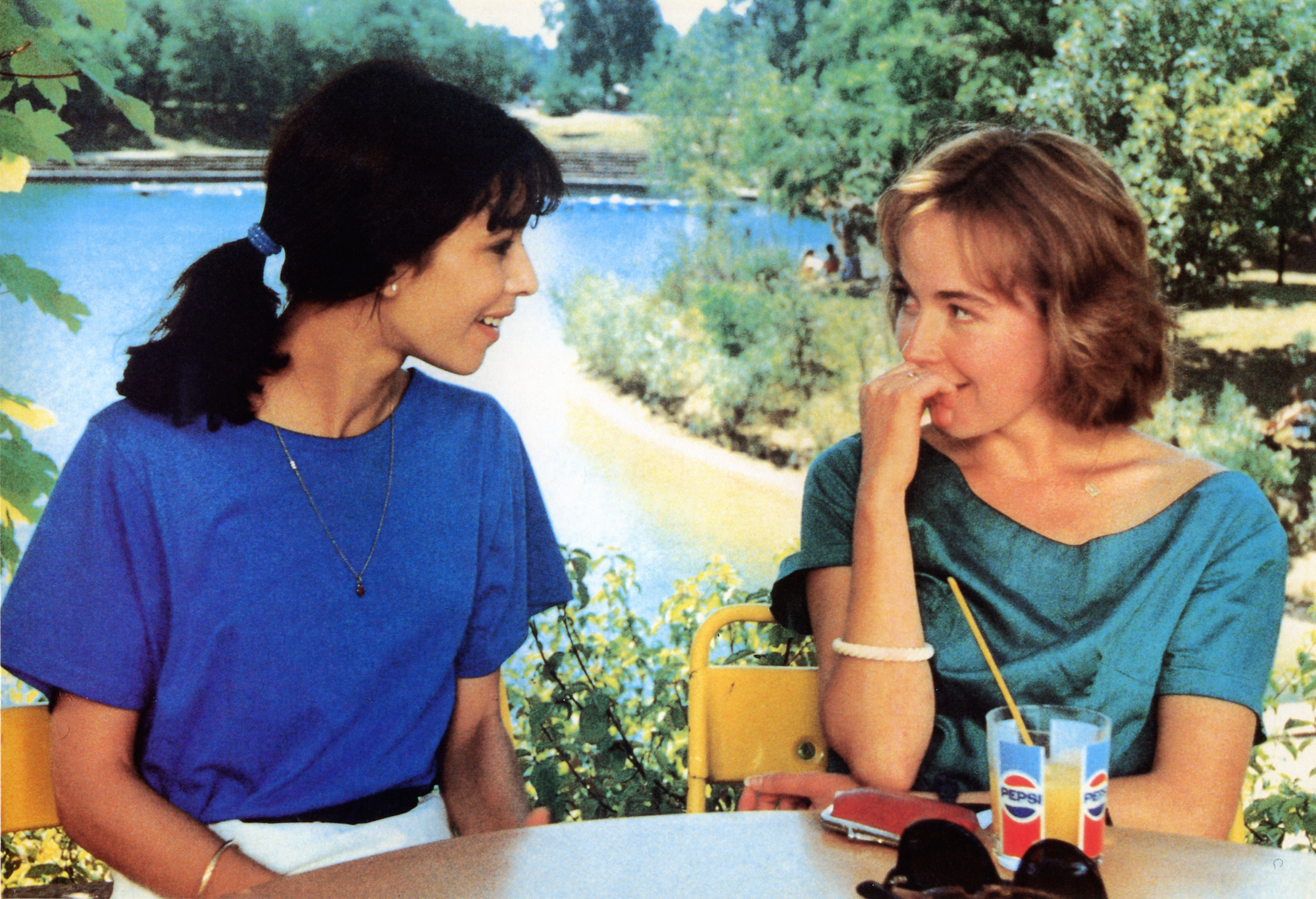
(Eric Rohmer, 1987) · “The friends of my friends are my friends.” When Blanche gets a new job in satellite city Cergy-Pontoise, she's befriended by Léa and attracted to Alexandre, but also strangely renewed by her chance encounters with Léa's boyfriend, Fabien. Can she balance love and friendship without sacrificing either? Lighter than most Rohmer films but by no means lesser, it deftly uses the sterile environs to offset the human comedy. Print courtesy of the Institut Français.
runtime: 103 min format: 35mm
2015-11-09 @ 7:00 PM
Four Adventures of Reinette and Mirabelle
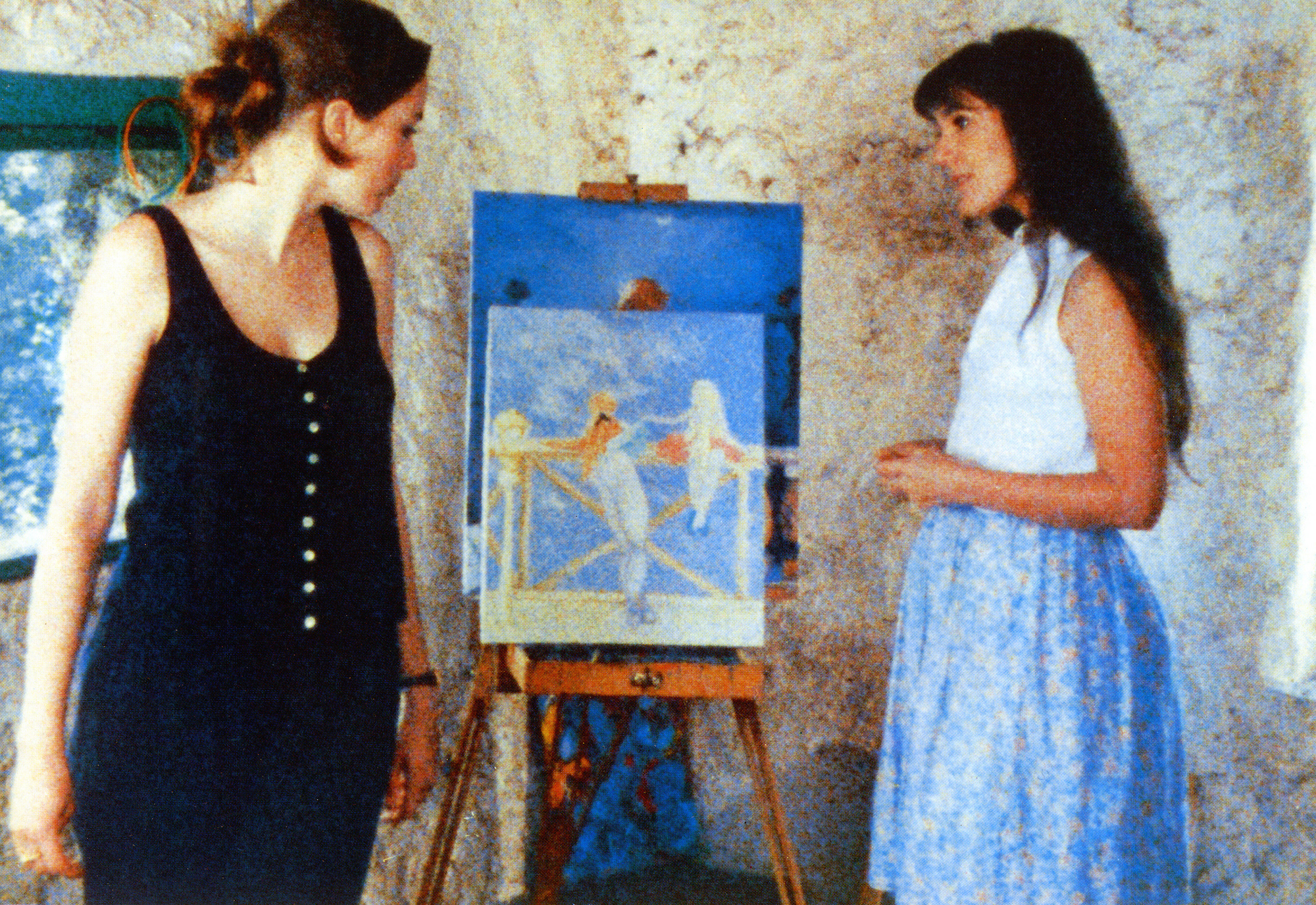
(Eric rohmer, 1987) · Rohmer followed up The Green Ray with another lo-fi 16mm production: this playful, romance-free lark about the friendship between a naive rural painter and a jaded Paris law student. Their experiences illustrate and challenge their worldviews, whether observing meteorological phenomena or trying to silently sell a painting. If most Rohmer films resemble short stories, this one is closer to flash fiction, concisely showing how two opposites relate.
runtime: 102 min format: 35mm
2015-11-16 @ 7:00 PM
The Tree, the Mayor and the Mediatheque
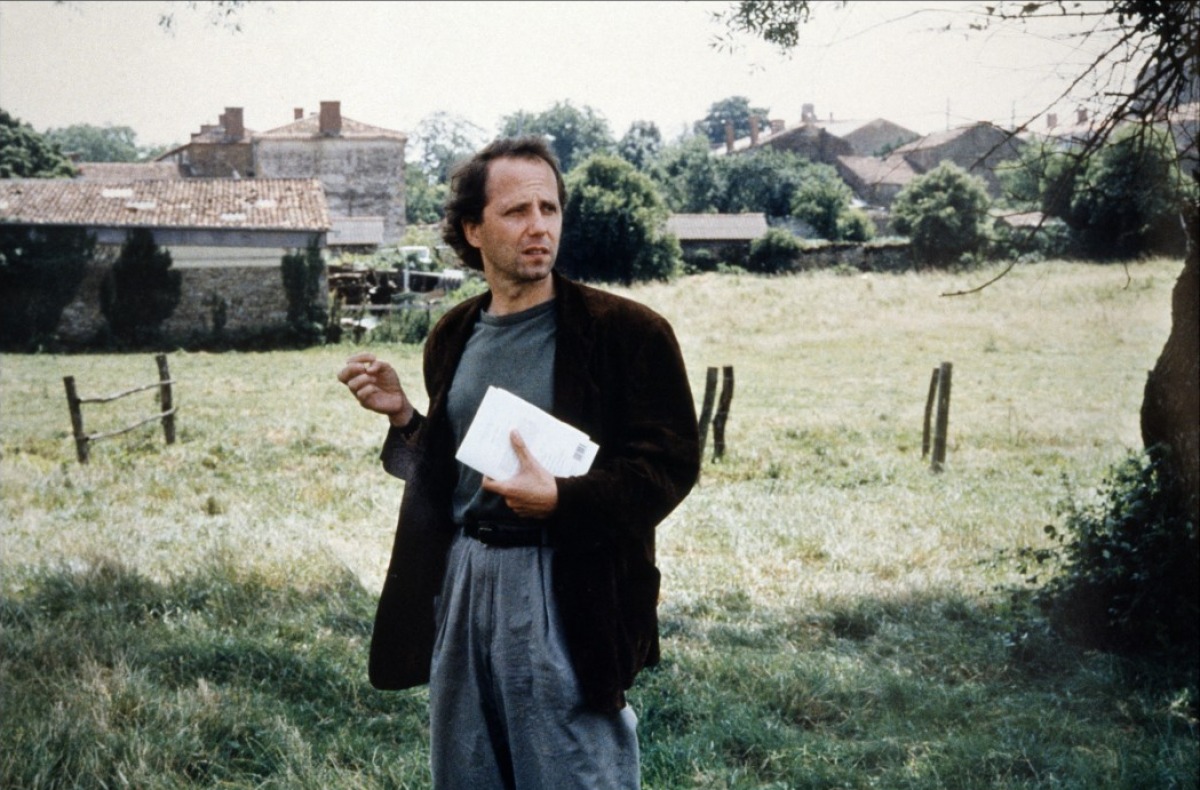
(Eric Rohmer, 1993) · Never released in the U.S., this “philosophical fable” showcases a more political but no less brilliant side of Rohmer. When a socialist mayor (Pascal Greggory) announces his plan to build an arts center, he upsets an environmentally-minded teacher. Rohmer ingeniously blends political theatre with documentary elements, going so far as to hire an architect to design plans and real townspeople to offer their perspective. Don’t miss this rare treat! Print courtesy of the Institut Français.
runtime: 105 min format: 35mm
2015-11-23 @ 7:00 PM
Rendezvous in Paris
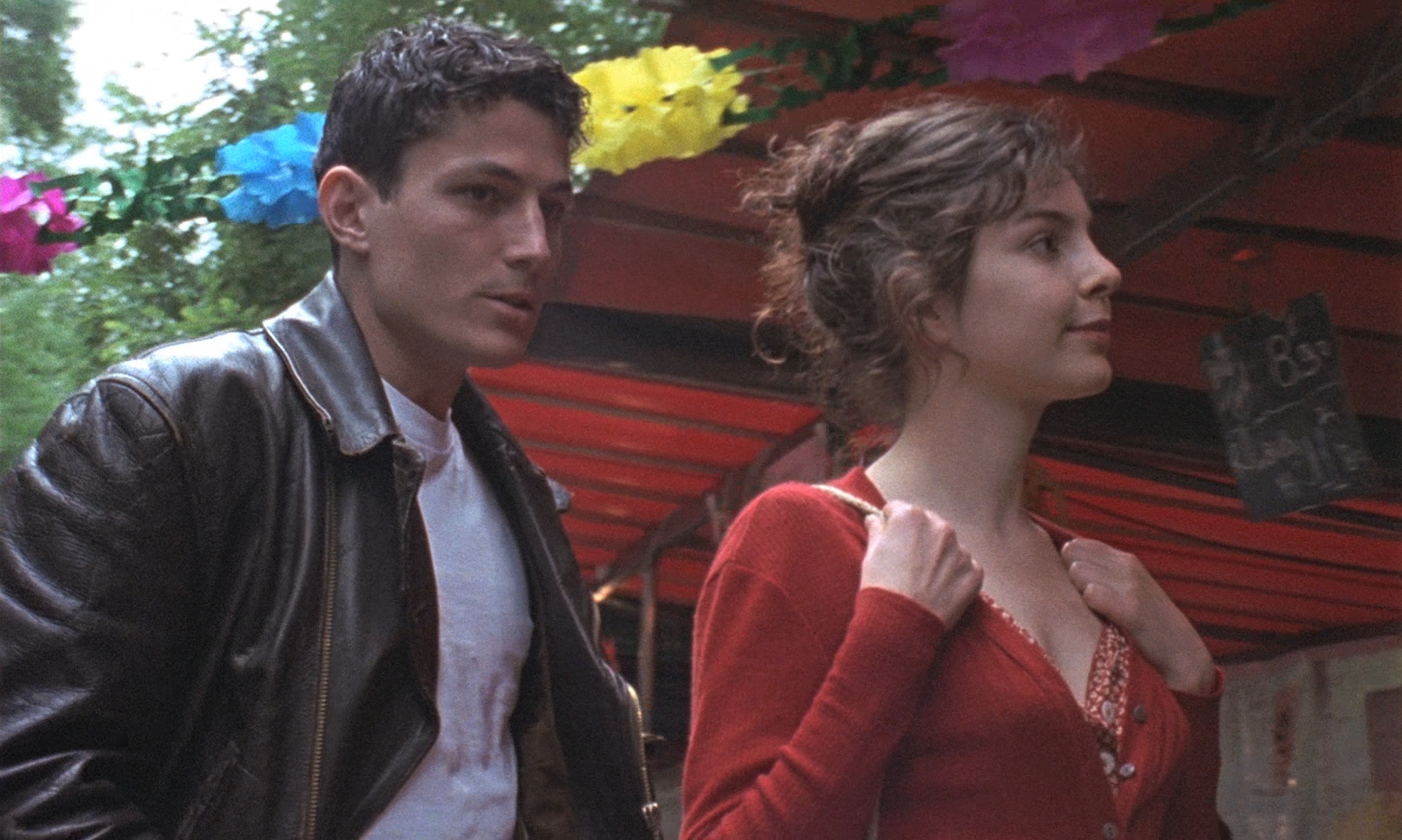
(Eric Rohmer, 1995) · If this delightful triptych had been given a proverb, it would have gone something like this: “The most romantic city is hardly the most loving.” In each irony-laden story, strangers are attractive to the jilted, the suspicious, and the opportunistic, yet they are only important relative to other potential mates. As Roger Ebert put it, “Paris is such an inspiration for these characters that they play lovers even when their hearts aren't in it.” Print courtesy of the Institut Français.
runtime: 94 min format: 35mm
2015-11-30 @ 7:00 PM
Autumn Tale
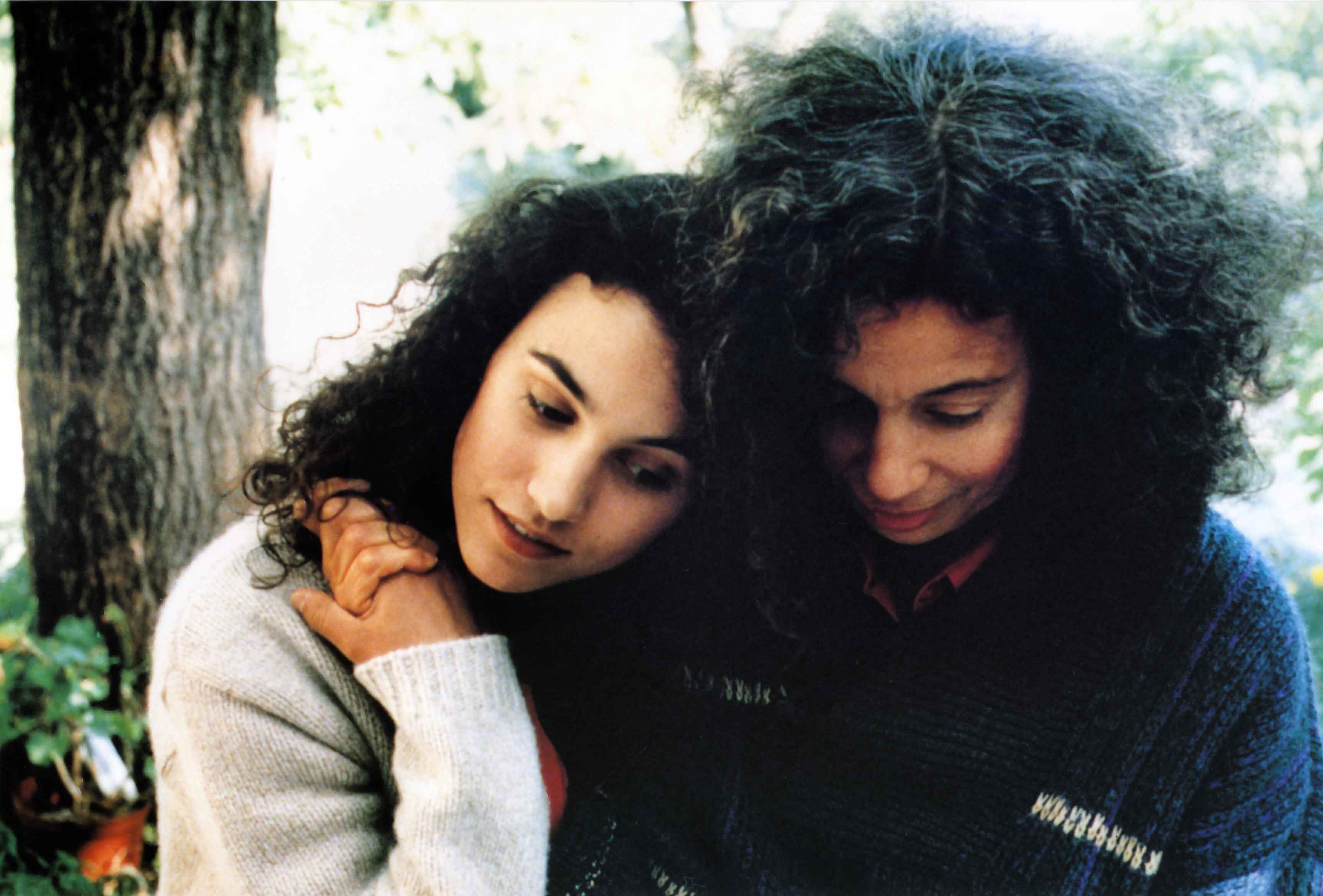
(Eric Rohmer, 1998) · For the first and only time, Rohmer turned his attention to middle-aged romance, made all the more poignant by the casting of former leads Béatrice Romand and Marie Rivière. Romand plays Magali, a lonely, widowed winemaker. Her meddling friend (Rivière) places a personal ad on her behalf, while her son’s girlfriend tries to set her up with her ex-lover/professor. Rohmer shrewdly paints these women as both hardened by time and as vibrant as ever. Print courtesy of the Institut Français.
runtime: 112 min format: 35mm



